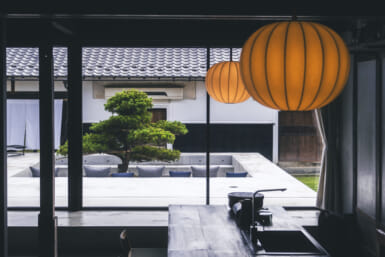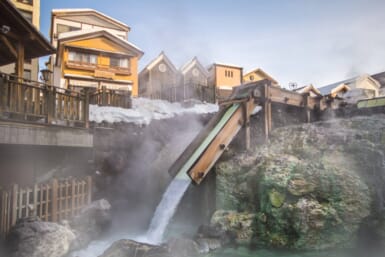In popular imagination Tokyo represents “the future,” and its corporate spaces feel as if they are becoming more virtual than real. This hasn’t been reflected, though, in a full embrace of our most invasive new technology — the Internet. That is, till 2010, reports RICHARD SMART, when average Japanese Internet users started to truly take advantage of the power of new social media to both express their personal opinions and to break real news outside of the mainstream media
It was back in 2006 when Time announced “You,” the potential online “netizen,” as the Person of the Year. In explaining its reasons for the choice, the magazine said “look at 2006 through a different lens, and you’ll see another story, one that isn’t about conflict or great men. … It’s about the many wresting power from the few and helping one another for nothing and how that will not only change the world, but also change the way the world changes.”
While Japan may not be in the midst of a grassroots political upheaval, this year has demonstrated that you need not be a member of a powerful media organization to break a story.
As disputes with China drag on, not a few people have likely become bored with the tit-for-tat wrangling between Tokyo and Beijing, but one of the most significant figures in the conflict so far was a member of the Japanese coast guard and a nobody. In November, the man, whose name has been withheld, leaked video footage of a Chinese ship ramming a Japanese boat near the Senkaku islands onto YouTube. That footage was then broadcast by more traditional media outlets, and helped to steer public opinion against China.
Leaks such as the Senkaku video, and a massive file detailing investigations that a counterterrorism unit of the Tokyo Metropolitan Police Department’s Public Security Bureau conducted, have led to a new Japanese phrase — dada-more, meaning a large scale leak of confidential data. The phrase can also be applied to unsanctioned streaming of events and news conferences utilising sites such as Ustream, another trend on the rise in Japan.
And then there is Twitter, the microblogging site that has hugely popular with Internet users in the country this year.
“If you look at the last year in a holistic view, it is absolutely the rise of Twitter that has shaped the social media landscape,” says Dr. Serkan Toto, a Tokyo-based web and mobile industry consultant who writes for the website TechCrunch. “It spread from a circle of geeks, and now it has over 10 million users in Japan.”
Those on the microblogging site were privy to the thoughts of Yukio Hatoyama soon after he resigned as the nation’s prime minister on June 2.
“I have decided to resign after listening to the voice of the people, who want Japanese politics to be less corrupt,” the politician tweeted. “From now on, I will be tweeting from the perspective of an average person rather than that of a prime minister.”
Independent journalists are also using the platform to put forward their opinions. Takashi Uesugi, a freelance journalist and opponent of Japan’s kisha kurabu system (the “reporters’ clubs” that maintain a stranglehold on access to government and business press conferences) uses the site to present opinions on both political news and the condition of media in Japan. With more than 90,000 followers, his writing is exposed to more people, and his stream of tweets act as a distribution channel that may in the future prove as effective as traditional media.
osuke Tsuneoka, another Japanese freelance writer, used Twitter to let people know he was still alive after he was kidnapped by militants in Afghanistan in April. “I am alive, but in jail,” Tsuneoka tweeted after tricking his guards into allowing him to access the site via cell phone, just before he was released in September.
The trend toward using Twitter is only likely to grow, according to TechCrunch’s Toto. “You have ‘How to Use Twitter’ books everywhere, there are Twitter magazines, TV is always covering Twitter, there is even a TV series based on Twitter,” Toto says.
“It has already changed the way Japan operates quite a bit,” he adds. “The page views are really rising and you can quantify it. Mixi’s latest financial report confirms this: For the first time, the number of posters (using that site) are using Mixi Voice, which is basically a Twitter clone on Mixi, rather than the long posts that people traditionally use that platform for.”
Away from the more social aspects of online media, mobile-platform gaming companies have also seen business boom this year. Websites Mobage Town and Gree, both of which are specifically designed for cell phones, have more than 20 million subscribers each. DeNA, which runs Mobage Town, made around ¥50 billion over the course of the first half of the fiscal year, while Gree made a similar amount. DeNA is now looking at exporting its mobile gaming business overseas.
“DeNA has bought an iPhone developer (Ngmoco) in San Francisco for $400 million,” Toto says. “They want to use this vehicle to establish a mobile social gaming community in the United states, for example. It’s almost unavoidable that this will be successful.
“Everybody was saying a few years ago that people in Japan were in social gaming because of the culture here,” he points out. “Now, everybody is talking about how to monetize the mobile market. I think in this case, Japan was just ahead of the curve. There is no way you will not see Americans and Europeans playing more games on their phones. It’s just bound to happen.”
While the West will likely be receiving mobile gaming from Japan, its return gift is likely to be a lot less welcome: Wikileaks.
The website’s initial frays into Japanese affairs did not cause much fuss: A difficult to read PDF explained an agreement between the United States and Tokyo on how to handle copyright, and a video that showed activity in a nuclear facility. Since then, however, the Cablegate leaks from the organization founded by Australian hacker Julian Assange have become a cause for concern for Japan’s government.
“They stole information from others and released it without permission,” Foreign Minister Seiji Maehara recently told a news conference. “We should not praise WikiLeaks for what they did.”
Regardless of Maehara’s argument, as with the leaked YouTube video during the Senkaku dispute, Japan is beginning to take an interest in the contents of Wikileaks. So far, most Japan-related material has focused on its relations with its neighbors China and South Korea, and little of interest has been released, including the vast stash of cables that came from the US Embassy in Tokyo.
According to files obtained by the Guardian, Wikileaks has 5,697 cables that originated in Tokyo, covering a wide range of subjects. Internal government affairs, the labor sector, intelligence and the economy are among the subjects most discussed in the cables, but may not be the most harmful to Japan’s image.
In an example of what may be damaging to the nation, around 30 cables concern the emotive issue of whaling, which has in recent years caused diplomatic headaches for Japan. More than 160 cables are also labelled as dealing with terrorism, an issue that could divide opinion in a nation that remains generally pacifist.
Whatever happens, the idea of an isolated culture is likely to fade further over the next year. — (Richard Smart)









